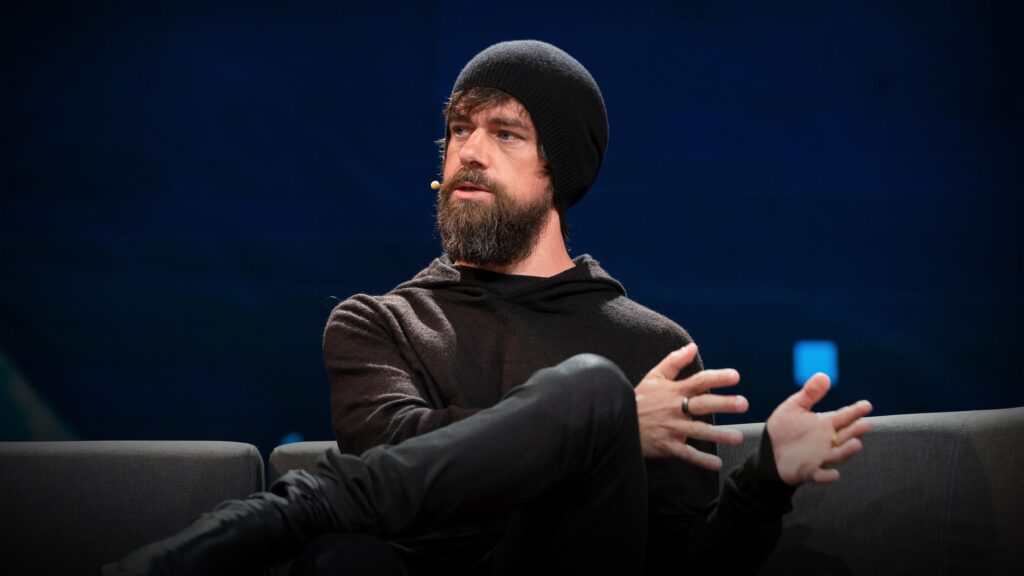- According to Jack, Web3 had strayed from its initial path and is currently a mockery of its founder.
- Yellow Card has successfully integrated with tbDEX, unlocking Bitcoin-to-fiat off-ramps across 20 African nations.
- TbDEx offers an open-source liquidity and trust protocol enabling seamless value exchange and transactions on a global scale.
The core principle governing the rapid growth of Web3-based applications is decentralization. Web3 has significantly grown over the past decade, outgrowing its initial application in cryptocurrency and now shifting towards an age of decentralized applications. This feat is made possible through the decentralized nature of blockchain technology. Its unique approach to security, protecting integrity, and providing quality assurance has led to its sudden trajectory.
Unfortunately, this presented developers with a critical problem: how to phase from web2, a centralized system, to web3, its polar opposite. Through various trials and errors, the first definite compliment to integrating web3 came through custodial exchanges. This feat provided hope for a future where web3 could co-exist alongside Web2 during its early stages and eventually phase out the legacy technology when it came.
Unfortunately, not all have been pleased with how developers have introduced a centralized entity amid Web3. Jack Dorsey, a renowned web3 advocate, made his stance clear. According to Jack, Web3 had strayed from its initial path and is currently a mockery of what its founder, Sakamoto, intended. Thus, Jack embarked on a journey to provide “True Decentralization” through his company, Block Inc.
Recently, Block has officially launched its decentralized Bitcoin Protocol, tbDEX, with Yellow Card being its first adopter. With this new application, Jack has claimed to reclaim the true definition of decentralization.
The conundrum of Web3 and Web2
After the FTX crash, many investors, crypto traders, and regulatory bodies became weary of the crypto industry. Despite the Web3 Franchise surpassing its dependence on cryptocurrency, it highlighted a significant problem that grew its roots amid all the glory and milestones: centralization. During the early stages of Web3, it became painfully clear that to grow, we had to present the same or superior capabilities to Web2.
For Web3 to achieve its global feats, it must offer the same reach its predecessor had, and at the time, it seemed all but impossible. Thus, developers sought an alternative methodology. Instead of completely replacing Web2, it would generally phase out over the years, usually enacting a global Parallel concurrent development methodology.
Unfortunately, this forced many developers to find new ways to integrate web3, a decentralized entity, into a worldwide centralized system, web2. The custodial exchanges like Binance, Kraken, and Luno were the first successful operations. This generally kickstarted the age of web3, but the concept shattered as it became clear that such approaches represented a singular point of failure.
Also, Read Blockchain Scalability complexities unravelled.
The continued integration of Web3 and Web2 soon inspired the likes of Jack Dorsey to pursue their definition of decentralization.
Block’s tbDEX goes live through the aid of Yellow Card.
To essentially achieve “true decentralization,” Jack Dorsey founded Block Inc. to develop applications that embodied the end goal of Sakamoto: to develop decentralized systems that catered directly to the user. Thus, in 2023, Jack set his sights on Africa, whose ecosystems acutely accommodated blockchain technology.
In recent developments, Block Inc. has officially launched its decentralized Bitcoin protocol, tbDEX. According to the official report, Block designed the protocol to foster trust and liquidity across diverse financial landscapes. To ensure its success, Block Inc. incorporated the aid of Yellow Card, one of Africa’s leading crypto exchanges.
Yellow Card has successfully integrated with tbDEX, unlocking Bitcoin-to-fiat off-ramps across 20 African nations. African users can now receive Bitcoin or stablecoin payments directly in their local currencies. In addition, all transactions are withdrawable through bank accounts, P2P payment apps, or mobile money providers.
Jack Dorsey, CEO of Block Inc has set his sights on achieving true decentralization via TBD.[Photo/TED]According to Mike Brock, CEO of TBD, tbDEx offers an open-source liquidity and trust protocol enabling seamless value exchange and transactions on a global scale. Furthermore, the deregulated Bitcoin protocol at its core allows financial institutions to conduct verifiable, trust-based transactions without the excess charges from intermediaries.

Jack Dorsey, CEO of Block Inc., has set his sights on achieving true decentralization via TBD.[Photo/TED]
Mike added, “At its core, tbDEX brings a layer of trust to exchange assets. The internet is missing a standardized way to make trusted transactions between fiat currencies, bitcoin, stablecoins, or any digital asset, without the involvement of an intermediary. Solving this problem without a third-party authority can reduce fraud and misrouted payments in a fairer way, which makes transacting easier and cheaper for everyone.“
The goals of Yellow Card, TBD, and Block Inc. perfectly align with the launch of tbDEX. The crypto industry has attained a positive trajectory, with Bitcoin steadily regaining its value. In addition, the rate of decentralized application in Africa has significantly grown, with local developers branching out to deal with the specific issues plaguing their region.
Emily Chiu commented, “The world today has both legacy payment systems and government currencies – as well as new, decentralized payment systems, currencies, and digital assets. tbDEX bridges these new technologies with established systems without requiring people to abandon the financial tools they use today.“
Block Inc. Pioneers for True Decentralization
The launch of tbDEX in Africa is a testament to Jack Dorsey’s determination to attain treu decentralization. Since the launch of Bitcoin, Jack has been an open advocate for decentralized applications and has gone as far as supporting several initiatives surrounding the concept.
Unfortunately, as the franchise continuously expanded its reach, going beyond the financial sectors, Jackl noticed a common trend that threatened the very foundation of Web3. During an interview, JACK stated that Web3 has strayed from its initial concept and has become nothing more than a Venture Capitalist investment scheme.
According to the former Twitter CEO, as Web3 branched into DeFi, NFTs, Web3 Games, and DAOs, more and more startups started to rely heavily on VC firms to prosper. In some cases, startups began relinquishing control over smart contracts to VC organizations to perfect them, infringing on the very concept of decentralization.
Also, Read Cryptocurrency Scam Alert: Blockworks and Etherscan Impersonation Unveiled.
In retaliation towards this growing “disease,” Jack sought to start his organization to dedicate its resources, efforts, and being to achieving “True decentralization.”
In 2009, Jack Dorsey and Jim McKelvey founded Square and organized to incorporate blockchain technology into digital applications. The company initially invested heavily in Bitcoin, significantly influencing why the original cryptocurrency is so beloved. In December 2021, Square announced it would shed its former name and adopt Block, Inc. Since then, Jack has worked tirelessly to achieve his version of true decentralization.
Over the years, Block Inc. has acquired several assets bolstering its influence over the web3 franchise. Block in owns Square payment system, an SME payment platform allowing business owners to use digital devices as payment registered for the Point-of-Sale system. The Square payment system was Block Inc.’s first achievement as Square. Later, they would own Cash APP, AfterPay, and Weebly, solidifying their position in the fintech industry.
Despite its numerous achievements, its most iconic and attentive crabbing endeavor is TBD. According to Jack, TBD represents the main aim for Block Inc. to develop a decentralized application that would usher in a new era of technology, namely Web5. TBD is a subsidiary of Block aiming to create a decentralized web platform focused on DeFi, Bitcoin, and Stablecoins.
With tbDEX going live, it solidifies the first step to developing a Web5 platform. The decentralized Bitcoin protocol opens the path towards Self Sovereign Identity and access to all financial systems. Block Inc. intends to use this accomplishment to attain true decentralization by abstracting the complexity behind it.
Also, Read The Soonami Ecosystem: Nurturing Web3 Ideas into Reality.
- SEO Powered Content & PR Distribution. Get Amplified Today.
- PlatoData.Network Vertical Generative Ai. Empower Yourself. Access Here.
- PlatoAiStream. Web3 Intelligence. Knowledge Amplified. Access Here.
- PlatoESG. Carbon, CleanTech, Energy, Environment, Solar, Waste Management. Access Here.
- PlatoHealth. Biotech and Clinical Trials Intelligence. Access Here.
- Source: https://web3africa.news/2023/12/07/news/block-inc-yellow-card-tbdex-live/
- :has
- :is
- :not
- :where
- 20
- 2021
- 2023
- 35%
- a
- access
- According
- Accounts
- Achieve
- achievement
- achievements
- achieving
- acquired
- across
- added
- addition
- adopt
- advocate
- africa
- African
- age
- Aid
- aim
- Aiming
- Alert
- align
- All
- All Transactions
- Allowing
- allows
- alongside
- alternative
- Amid
- an
- and
- announced
- any
- app
- Application
- applications
- approach
- approaches
- apps
- ARE
- AS
- asset
- Assets
- assurance
- At
- attain
- attained
- authority
- Bank
- bank accounts
- became
- become
- been
- began
- behind
- being
- beloved
- between
- Beyond
- binance
- Bitcoin
- Block
- Block Inc.
- blockchain
- blockchain technology
- Blockworks
- bodies
- bolstering
- both
- bridges
- Brings
- brock
- business
- business owners
- but
- by
- came
- CAN
- capabilities
- card
- cases
- Centralization
- centralized
- ceo
- charges
- cheaper
- claimed
- clear
- commented
- Common
- company
- completely
- complexities
- complexity
- concept
- concurrent
- Conduct
- continued
- continuously
- contracts
- control
- conundrum
- Core
- could
- Crash
- create
- critical
- crypto
- Crypto Exchanges
- Crypto Industry
- crypto traders
- cryptocurrency
- currencies
- Currently
- custodial
- custodial exchanges
- DAOs
- deal
- decade
- December
- december 2021
- Decentralization
- decentralized
- Decentralized Applications
- decentralized web
- dedicate
- DeFi
- definition
- dependence
- designed
- Despite
- determination
- develop
- developers
- developing
- Development
- developments
- Devices
- digital
- Digital Asset
- Digital Assets
- directly
- diverse
- dorsey
- during
- Early
- easier
- ecosystem
- Ecosystems
- efforts
- embarked
- enabling
- end
- endeavor
- ensure
- entity
- Era
- Errors
- essentially
- established
- etherscan
- eventually
- everyone
- excess
- exchange
- Exchanges
- expanded
- Failure
- fairer
- far
- feat
- Fiat
- fiat currencies
- financial
- Financial institutions
- financial systems
- Find
- fintech
- firms
- First
- focused
- For
- Forbes
- Former
- Foster
- Foundation
- Founded
- founder
- franchise
- fraud
- from
- FTX
- ftx crash
- Furthermore
- future
- Games
- generally
- Global
- global scale
- glory
- goal
- Goals
- Goes
- going
- gone
- governing
- Government
- grew
- Grow
- Growing
- grown
- Growth
- had
- Have
- heavily
- Highlighted
- his
- hope
- How
- How To
- HTTPS
- iconic
- ideas
- Identity
- impossible
- in
- Inc.
- incorporate
- Incorporated
- industry
- influence
- influencing
- initial
- initially
- initiatives
- inspired
- instead
- institutions
- integrate
- integrated
- Integrating
- integration
- integrity
- intended
- intends
- intermediaries
- intermediary
- Internet
- Interview
- into
- introduced
- invested
- investment
- Investors
- involvement
- issues
- IT
- ITS
- jack
- journey
- jpg
- kickstarted
- Kraken
- landscapes
- later
- launch
- launched
- layer
- leading
- Led
- Legacy
- like
- likes
- Liquidity
- live
- local
- Luno
- made
- Main
- make
- MAKES
- many
- max-width
- Methodology
- mike
- Milestones
- missing
- Mobile
- Mobile money
- money
- more
- most
- must
- name
- namely
- Nations
- Nature
- New
- New technologies
- NFTs
- nothing
- now
- numerous
- nurturing
- of
- offer
- Offers
- official
- Officially
- on
- ONE
- open
- open source
- opens
- Operations
- opposite
- or
- organization
- organizations
- Organized
- original
- out
- over
- owners
- p2p
- Parallel
- past
- path
- payment
- payment system
- Payment Systems
- payments
- People
- perfect
- perfectly
- phase
- pioneers
- platform
- plato
- Plato Data Intelligence
- PlatoData
- pleased
- Point
- Point-of-sale system
- polar
- position
- positive
- possible
- predecessor
- present
- presented
- principle
- Problem
- prosper
- protecting
- protocol
- provide
- provided
- providers
- providing
- pursue
- quality
- rapid
- Rate
- reach
- receive
- recent
- reduce
- region
- registered
- regulatory
- rely
- Renowned
- report
- represented
- represents
- Resources
- roots
- same
- Scalability
- Scale
- Scam
- Scam Alert
- scheme
- seamless
- Sectors
- security
- seemed
- SELF
- set
- several
- shed
- SHIFTING
- Sights
- significant
- significantly
- since
- singular
- smart
- Smart Contracts
- SME
- So
- solidifies
- solidifying
- Solving
- some
- soon
- sought
- sovereign
- specific
- square
- stablecoin
- Stablecoins
- stages
- stance
- start
- started
- Startups
- stated
- steadily
- Step
- subsidiary
- success
- successful
- Successfully
- such
- sudden
- superior
- Supporting
- surpassing
- Surrounding
- system
- Systems
- Technologies
- Technology
- testament
- than
- that
- The
- their
- Them
- then
- These
- they
- third-party
- this
- Through
- Thus
- time
- tirelessly
- to
- today
- tools
- towards
- Traders
- trajectory
- transacting
- Transactions
- Trend
- trials
- true
- Trust
- trusted
- unfortunately
- unique
- unlocking
- use
- User
- users
- usher
- usually
- value
- various
- VC
- venture
- venture capitalist
- verifiable
- version
- very
- via
- was
- Way..
- ways
- we
- web
- Web2
- Web3
- web3 games
- Web5
- WELL
- were
- What
- when
- which
- whose
- why
- with
- without
- worked
- world
- worldwide
- would
- years
- Yellow Card
- zephyrnet













